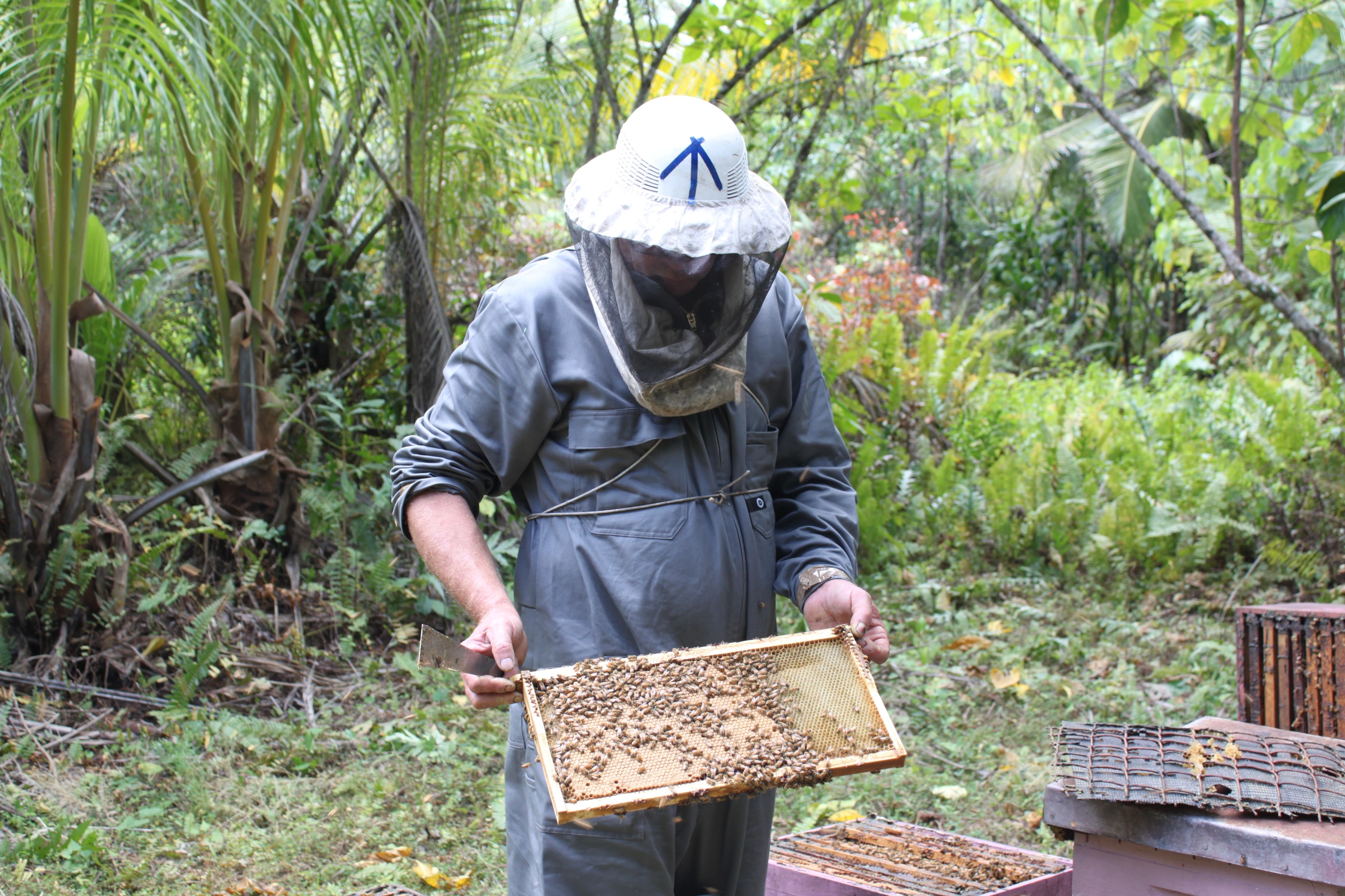
The overall aim of this project is to: (i) assess, monitor, and manage honey bee pests in the region; (ii) increase the capacity of beekeepers in the beneficiary countries to implement good apicultural practices; and (iii) establish a regional governance mechanism for sustainable growth of the industry. Nation-wide disease surveys for each of the 7 beneficiary countries will provide valuable data for managing bee health and mitigating disease risks. The project will then focus on beekeeper training and extension services which will enhance stakeholders' knowledge of SPS requirements and encourage passive surveillance activities. Lastly, the project will establish regional mechanisms for ongoing support and assistance of the industry. This new regional governance mechanism would comprise the public and private sector, as well as representatives from development partners.
In 2018, the STDF provided funding to conduct a feasibility study on the establishment of a "Pacific Bee Sanctuary" in Niue. Based on the work done, regional stakeholders began exploring how the production and trade in honey could be boosted at a regional level. Following up on this idea, the STDF approved a PPG grant in 2023 for the Pacific Islands Forum Secretariat (PIFS) to develop a regional project to strengthen the production and export capacity of the apiculture industry in the Pacific region (STDF/PPG/935). This project derives from this PPG and was developed with the support of the New Zealand-based company AsureQuality.
Beekeeping in the Pacific offers a potential source of income for rural communities where farming is the main source of livelihood. Beekeeping is environmentally friendly, has positive externalities for agriculture, requires low capital investment, and can provide a stable income source for smallholder farmers. While past and current projects have laid important groundwork, a more coordinated and resource-efficient approach is necessary to overcome existing challenges and achieve lasting SPS capacity in apiculture sector in the Pacific.
The beneficiary countries vary in their beekeeping capacities, with some being more advanced and closer to exporting than others. For example, Niue lacks most of the bee pests and diseases which hinder industry growth and access to market. They have ideal honey bee genetics for commercial honey production and a body of work towards a Pacific Bee Sanctuary has already been completed. Samoa and Fiji are yet to operate a sustainable commercial honey model and need assistance with growing hive numbers and applying good manufacturing practices. Tonga, Vanuatu, and Solomon Islands have few beehives and a very weak apiculture industry, while Papua New Guinea has a challenging pest and disease status. The project will adopt a regional approach to address SPS capacity constraints by coordinating disease surveys, sharing best practices, and facilitating market access for bee products across the Pacific.
The STDF project is expected to jumpstart a longer-term initiative that will go beyond the initial 3-year project since there are several countries that will require more time to be able to reach export level capacity. This project includes a co-funding contribution of US$279,000 from the Australian Department of Foreign Affairs and Trade (DFAT).